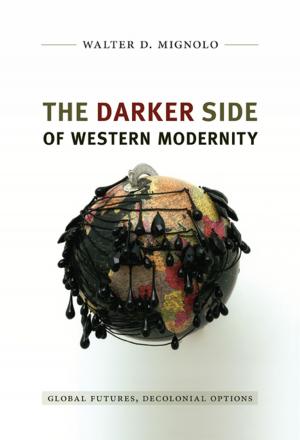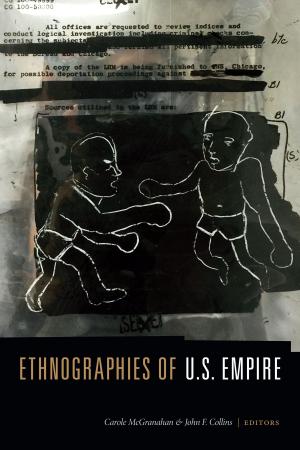Everyday Conversions
Islam, Domestic Work, and South Asian Migrant Women in Kuwait
Nonfiction, History, Middle East, Social & Cultural Studies, Social Science, Anthropology, Gender Studies| Author: | Attiya Ahmad | ISBN: | 9780822373223 |
| Publisher: | Duke University Press | Publication: | March 9, 2017 |
| Imprint: | Duke University Press Books | Language: | English |
| Author: | Attiya Ahmad |
| ISBN: | 9780822373223 |
| Publisher: | Duke University Press |
| Publication: | March 9, 2017 |
| Imprint: | Duke University Press Books |
| Language: | English |
Why are domestic workers converting to Islam in the Arabian Peninsula and Persian Gulf region? In Everyday Conversions Attiya Ahmad presents us with an original analysis of this phenomenon. Using extensive fieldwork conducted among South Asian migrant women in Kuwait, Ahmad argues domestic workers’ Muslim belonging emerges from their work in Kuwaiti households as they develop Islamic piety in relation—but not opposition—to their existing religious practices, family ties, and ethnic and national belonging. Their conversion is less a clean break from their preexisting lives than it is a refashioning in response to their everyday experiences. In examining the connections between migration, labor, gender, and Islam, Ahmad complicates conventional understandings of the dynamics of religious conversion and the feminization of transnational labor migration while proposing the concept of everyday conversion as a way to think more broadly about emergent forms of subjectivity, affinity, and belonging.
Why are domestic workers converting to Islam in the Arabian Peninsula and Persian Gulf region? In Everyday Conversions Attiya Ahmad presents us with an original analysis of this phenomenon. Using extensive fieldwork conducted among South Asian migrant women in Kuwait, Ahmad argues domestic workers’ Muslim belonging emerges from their work in Kuwaiti households as they develop Islamic piety in relation—but not opposition—to their existing religious practices, family ties, and ethnic and national belonging. Their conversion is less a clean break from their preexisting lives than it is a refashioning in response to their everyday experiences. In examining the connections between migration, labor, gender, and Islam, Ahmad complicates conventional understandings of the dynamics of religious conversion and the feminization of transnational labor migration while proposing the concept of everyday conversion as a way to think more broadly about emergent forms of subjectivity, affinity, and belonging.















